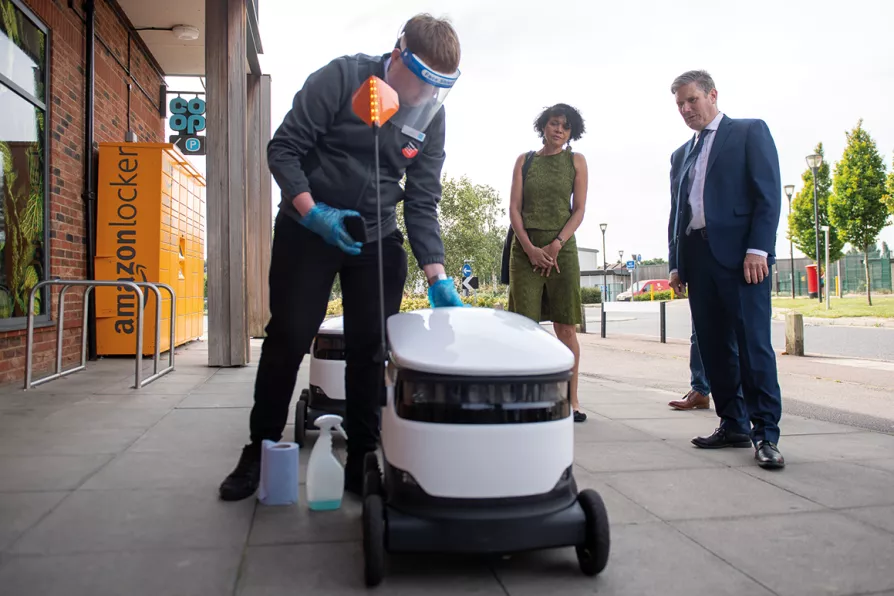Now at 115,000 members and in some polls level with Labour in terms of public support, CHRIS JARVIS looks at the factors behind the rapid rise of the Greens, internal and external
Does automation spell the end of capitalism?
Capitalism will not 'automatically' morph into some 'postcapitalist' or socialist system due to technology replacing the human workforce. As the MARX MEMORIAL LIBRARY explains, ending capitalism will require a conscious, collective action on the part of 'the many' — the working class

 THE END OF WORK? Labour leader Keir Starmer meets a fleet of Starship delivery robots at a Co-op in Milton Keynes, during a visit to discuss technological innovation during Covid-19
THE END OF WORK? Labour leader Keir Starmer meets a fleet of Starship delivery robots at a Co-op in Milton Keynes, during a visit to discuss technological innovation during Covid-19
AUTOMATION — defined as the introduction of a technology whereby a process (physical or informational) can be accomplished with significantly reduced human agency — has deep historic roots.
Two millennia ago Heron of Alexandria invented a combustion engine to open temple doors so that onlookers would believe the gods were moving them without human agency. But fire power was not used for any productive purpose — why bother to automate when you have slaves to do the work?
Under capitalism, by contrast, the displacement or routinisation of human labour in search of profit has been a prime driver of innovation. In the Communist Manifesto Marx and Engels emphasised the dynamism of technology within capitalism.
Similar stories

ANSELM ELDERGILL asks whether artificial intelligence may decide legal cases in the future, in place of human judges, and how AI could reshape the legal landscape

Labour’s fiscal policy is already in trouble. But simply printing money is not a solution, says the Marx Memorial Library and Workers School

RICHARD CLARKE recommends a hugely valuable text for those seeking theoretical analysis and practical action to defend public services

Lenin’s theory of the weakest link shifted the centre of gravity of the proletarian revolution towards peoples’ struggles in the developing world, contrary to the expectation of Marx and Engels. The effect was to hinder the cause of socialism by decades. Time bring it back to its natural home, argues FAWZI IBRAHIM











